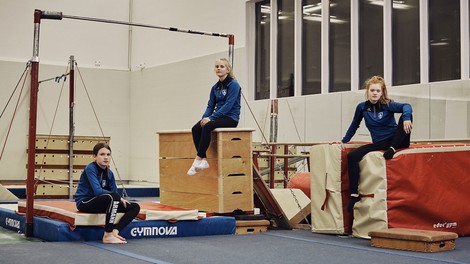Your podcast discovery platform
Curious minds select the most fascinating podcasts from around the world. Discover hand-piqd audio recommendations on your favorite topics.

piqer for: Boom and bust Health and Sanity Global finds Doing Good
Danielle Batist is an experienced freelance journalist, founder of Journopreneur and co-founder of the Constructive Journalism Project. She lived and worked all around the globe and covered global and local stories of poverty, exclusion and injustice. Increasingly, she moved beyond ‘problem-reporting’ to include stories about the solutions she found. She witnessed the birth of the new nation of South Sudan and interviewed the Dalai Lama. She reported for Al Jazeera, BBC and the Guardian and regularly advises independent media organisations on innovation and sustainability. She loves bringing stories to the world and finding the appropriate platforms to do so. The transformation of traditional media fascinates rather than scares her. While both the medium and the message are changing, she believes the need for good storytelling remains.
Iceland Knows How To Stop Teen Substance Abuse But The Rest Of The World Isn’t Listening
The headline of this longform article is intriguing enough to suck you in, and the constructive journalism that follows doesn’t disappoint. This is an interesting deep-dive into the preventative approach Iceland has taken to tackle drug and alcohol abuse.
The story focuses on Iceland’s progressive programme of government measures that have led to the most dramatic drop in drug and alcohol abuse in Europe since the late 90s. It explains how researchers struggled to sell the programmes due to a lack of evidence: primary prevention methods cannot always be shown in the form of a causal relationship with use rates.
What is clear, however, is that widely used programmes that involve warning youth about the dangers of drink and drugs are not working. Still, there is resistance against using methods like the Icelandic one because of the perceived high levels of government interventions. “How much control do you want the government to have over what happens with your kids? Is this too much of the government meddling in how people live their lives?”
Laws were changed. It became illegal to buy tobacco under the age of 18 and alcohol under the age of 20, and tobacco and alcohol advertising was banned. Links between parents and school were strengthened through parental organisations which by law had to be established in every school, along with school councils with parent representatives. Parents were encouraged to attend talks on the importance of spending a quantity of time with their children rather than occasional “quality time”, on talking to their kids about their lives, on knowing who their kids were friends with, and on keeping their children home in the evenings. A law was also passed prohibiting children aged between 13 and 16 from being outside after 10pm in winter and midnight in summer. It’s still in effect today.
All in all an interesting insight that begs the question: why are we not willing to learn from this success?
